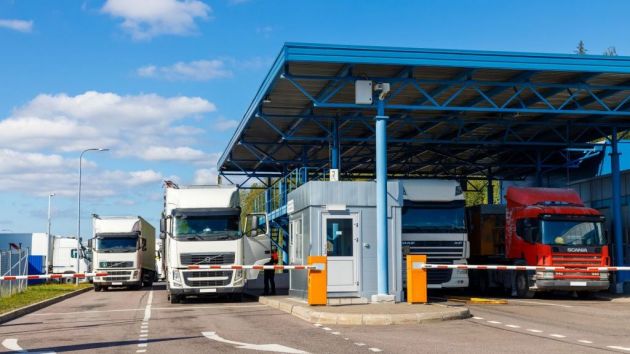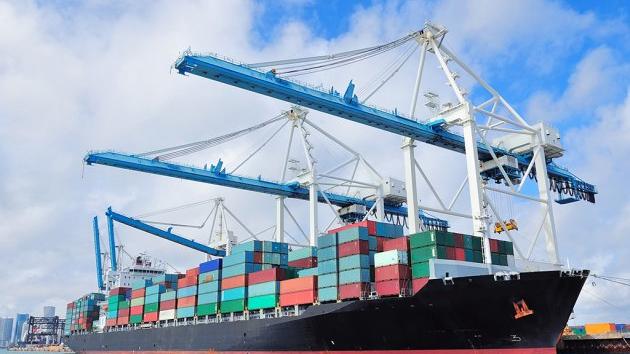Velibor Peulić, Logistics Consortium BiH: Times of Challenges and Opportunities for Domestic Carriers and the Transport Sector
Source: eKapija
 Monday, 12.05.2025.
Monday, 12.05.2025.
 00:32
00:32
 Monday, 12.05.2025.
Monday, 12.05.2025.
 00:32
00:32
Velibor Peulić (Photo: Lična arhiva)

Prof. Ph.D. Velibor Peulić, coordinator of the Logistics Consortium of BiH, asserted himself as the first man in the defense of the interests of the carrier, and in an interview for eKapija, he says that the media made a big contribution to their views getting wider and stronger visibility, and that they still have a lot of work to do to improve the position of transport and logistics companies in BiH.
We talked with him about the numerous difficulties that burden domestic carriers, and the Consortium has recently sent the Ministry of Communications and Transport of Bosnia and Herzegovina a number of conclusions that they consider important to address.
Among other things, they request that the center of excellence accredit and approve the work of the MKT of BiH, that drivers from Serbia and Montenegro can start working with an adequate certificate from those countries, to eliminate CEMT receipts, to solve the issue of the third plate, to limit the price of semi-trailers, the abolition of the monopoly on ATP certificates, the increase of the discount for using the highway to 50% and numerous other changes.
eKapija: How do you evaluate the current situation in the field of transport and logistics in BiH? Do you see progress in easing the burden on business and the general environment?
- Transport and logistics form the bloodstream of any economy. In Bosnia and Herzegovina this sector has huge potential, but unfortunately, there has been no systematic work on its strengthening and creation of a favorable business environment for more than twenty years. Lack of long-term strategies, slow infrastructure development and complex administrative procedures have led to a situation where carriers and logistics companies often operate in difficult conditions.
Nevertheless, we believe that we are facing a time of challenges, but also opportunities - especially through digitalization, regional cooperation, process modernization and strengthening of institutional support, which can give new dynamics to the sector and open the door to a stronger connection with the European market.
The state of transport and logistics in Bosnia and Herzegovina is still burdened by excess administrative procedures, high expenses and slow modernization. Although certain initiatives have been launched, such as the digitization of customs processes and discussions on business relief, they are still isolated measures without system support.
We lack strategic approach, a long-term infrastructure investment plan and a strong political will to truly de-clutter supply chains. Without serious changes, it will be difficult for us to catch up with the standards required by the regional and European markets. The Logistics Consortium of BiH is a non-profit gathering and association of legal entities, transport, logistics and forwarding providers, that through cooperation, coordination and competition, cooperate in a consortium with the aim of promoting and protecting common interests and participation in joint activities with the aim of strengthening competitiveness, cost optimization and business improvement within and outside Bosnia and Herzegovina.
- Limitations such as the 90/180 day rule are a serious obstacle for our carriers. Drivers from BiH are often treated as ordinary tourists, which creates a huge administrative and operational burden. The Logistics Consortium of Bosnia and Herzegovina recognized the seriousness of the problem and sent a proclamation to all associations and associations, bringing together more than 90% of carriers and logistics companies. Our common goal is clear: we demand the abolition of discriminatory interpretations of the 90/180 rule and relief from all indirect and direct costs caused by bad administrative practices.
We have signed basic agreements with the European Union, and we hope that through synergy with partners from the EU and interest communities of transport companies from the surrounding area, we will point out wrong interpretations with one voice. We must achieve an understanding that the driver is not a tourist, but a professional who performs a difficult and complex job, crucial to the functioning of the European market.
With the aim of permanently solving the problem of discrimination of drivers from Bosnia and Herzegovina, we believe that Bosnia and Herzegovina must initiate a diplomatic dialogue with the European Union institutions, with active participation of the Ministry of Foreign Affairs and the Ministry of Transport and Communications. Our demand is that professional drivers from Bosnia and Herzegovina be provided with treatment that will be proportional, non-discriminatory and based on an understanding of their specific role in European logistics flows.
At the same time, we can also use relevant articles of the Treaty on the Functioning of the European Union (TFEU) as the legal basis for argumentation:
• Article 20, which introduces Union citizenship and principles of freedom of movement,
• Article 21, which provides the citizens of the Union with the right to free movement and residence.
Although these rights primarily apply to EU citizens, they create a broader principle that the free movement of labor must not be unnecessarily restricted.
For professional drivers from third countries like Bosnia and Herzegovina, who perform work tasks on EU territory based on CEMT permits, bilateral agreements or transit rights, any application of a rule such as 90/180 must be proportionate, legally based and non-discriminatory. This legal argumentation can serve as a basis for appeals, bilateral negotiations and initiatives which aim to clearly demarcate the status of professional drivers from the status of tourists.
eKapija: In addition, carriers face numerous other challenges, especially at the borders. What are your proposals and when can we expect concrete changes?
- Crossing borders today is one of the biggest bottlenecks in transport. On average, our transporters lose 14.5 hours at one border crossing, which on an annual level amounts to over 208 waiting hours per vehicle. This generates enormous losses and reduces competitiveness. We are focused on eliminating activities that are "causers" of retention, which are not justified.
Our proposals include:
• Reorganization and measuring the work of employees - "green way"
• Sync with neighboring countries
• Increasing the efficiency of the work of officials
• NCTS implementation
• Establishment of "green lanes" for trucks with full documentation,
• Digitization of border procedures through eCMR and eFTI systems,
• Mutual recognition of electronic documents between the countries of the region.
By the end of this year, we expect the first results through pilot projects at certain border crossings. For full effect, concerted action of all institutions and decisive political support is needed.
eKapija: Shortage of drivers on the market? How to stop it?
eKapija: Shortage of drivers on the market? How to stop it?
- Driver shortage is a serious problem that threatens the stability of supply chains. The main reasons are an aggressive model of attracting drivers to the EU, promises are often not with actual income, the problem of the 90/180 rule, the problem of administrative barriers, inconsistency in the definition of "professional motor vehicle driver" role and place, in some cases, it is low incomes, unfavorable working conditions and the departure of young staff abroad. In the EU, 2.5% are drivers under 25 years of age, while more than 56% are drivers over 55 years of age, it certainly makes for a disadvantageous structure, and the barriers limiting the access of transport companies from the Balkans create a serious basis for migration flows, but we must stop this. Through dialogue with the EU, but decisive dialogue, restoring dignity, liberalization of access to the market, is currently limited with CEMT permits to four drives.
(Photo: Konzorcijum logistika BiH)

We see solutions in:
• elimination of legal barriers to market access
• redefining contracts and agreements with the EU
• Bilateral resolution of issues of concern to supply chains
• salary increase and improvement of working conditions,
• education and certification system reforms,
• subsidizing training costs for young drivers,
• change the perception of driving as a dignified profession.
Without a systemic approach, we risk running out of a key workforce for road transport in the next few years.
eKapija: How do you assess the cooperation with regional associations? Is there an initiative for joint action?
- Cooperation with regional associations is crucial, and we are already taking concrete steps. As part of the Logistics Consortium of Bosnia and Herzegovina, we are working on creating a regional logistics forum, through which we want to institutionalize cooperation, act jointly towards European bodies, and coordinate initiatives for standardization of procedures, digitization and green transition.
Only with united forces can we win equal conditions for all transporters from the Western Balkans.
eKapija: Other modes of transport in Bosnia and Herzegovina (river, air, rail) - what are the perspectives?
We signed an agreement with regional transport leaders, we share the same problems, we have the same intentions and objectives, and through synergy, we expect to solve the issues of joint action and one voice towards the EU. Mutual information exchange and joint coordination leads to a positive outcome.
eKapija: Other modes of transport in Bosnia and Herzegovina (river, air, rail) - what are the perspectives?
- BiH has a huge unused potential in railway, river and air transport. The railway could be a pillar of sustainable logistics, but requires serious investment in modernization and intermodal terminals.
River transport, especially the navigability of the Sava, can relieve road traffic and reduce transport costs. Air cargo, with the development of logistics capacities at airports, can become an important segment for fast delivery of high-value goods.
River transport, especially the navigability of the Sava, can relieve road traffic and reduce transport costs. Air cargo, with the development of logistics capacities at airports, can become an important segment for fast delivery of high-value goods.
Unfortunately, they have not been given adequate attention until now, but we believe that growing market needs will force decision-makers to invest in the diversification of transport modalities. The Logistics Consortium launched an initiative of dialogue and studies, how to integrate the door-to-door strategy with railway operators, so we worked out several scenarios for intermodal transport as a sustainable system in the future - river transport, the regional issue of the navigability of the Sava River, but also the strengthening of the port capacity infrastructure, the "slanted shores of the BrÄŤko port", arrangement of the Sava River bed, etc.
eKapija: What are the expectations and focus of Cluster Logistics BiH in the coming period?
- Cluster Logistika BiH consortium connects business entities, transport, logistics, freight forwarding and other related activities and related support organizations within the framework of geographically concentrated regional, traditional or other organizational formats, as well as other institutions, consortia and organizations that guarantee a critical mass of knowledge, technologies, resources and funds important for strengthening the competitiveness of individual enterprises, partners and the Consortium as a whole.
The main objectives of the work of the Consortium are the protection of the interests of road freight transporters in domestic and international road transport, protection of the interests of freight forwarding companies, logistics providers through active partnership with decision makers in the home areas and improving the business success of partners through the introduction of standards, cost optimization, models and forms of promoting best practices in the field of road freight transport, shipping and providing services to partners that contribute to their business goals. Our focus in the coming period will be on three strategic areas:
1. Alleviating the cost burden in order to facilitate business
2. Digitization of processes - application of eCMR and eFTI standards,
3. Green transition - promotion of environmentally sustainable transport,
4. Professionalization of personnel - strengthening the system of education and certification of drivers and logistics personnel.
Also, we continue our strong commitment to regional integration and partnership work with EU institutions, because we believe that only through open dialogue and joint projects can we make real progress for the future of logistics and transport in Bosnia and Herzegovina.
The Consortium`s work is based on the principles of professionalism, equality, tolerance and equality, appreciation and understanding, professionalism and thoroughness, and it is deprived of all voluntarism, leadership, partial interests, political aspirations.
Senka Trivić

Click here to see the entire Special Edition Newsletter
"TRANSPORT AND LOGISTICS - Ready to move the impossible?"
read more
Tags:
Logistics Consortium of BiH
Velibor Peulić
driver problems
transporter challenges
border crossings
detention of drivers at borders
special edition newsletters of eKapija
TB Transport and logistics Business development driver
special edition newsletter transport and logistics
Comments
Your comment
Naš izbor
Most Important News
Full information is available only to commercial users-subscribers and it is necessary to log in.
Follow the news, tenders, grants, legal regulations and reports on our portal.
Registracija na eKapiji vam omogućava pristup potpunim informacijama i dnevnom biltenu
Naš dnevni ekonomski bilten će stizati na vašu mejl adresu krajem svakog radnog dana. Bilteni su personalizovani prema interesovanjima svakog korisnika zasebno,
uz konsultacije sa našim ekspertima.


 Izdanje Srbija
Izdanje Srbija Serbische Ausgabe
Serbische Ausgabe Izdanje BiH
Izdanje BiH Izdanje Crna Gora
Izdanje Crna Gora


 News
News














